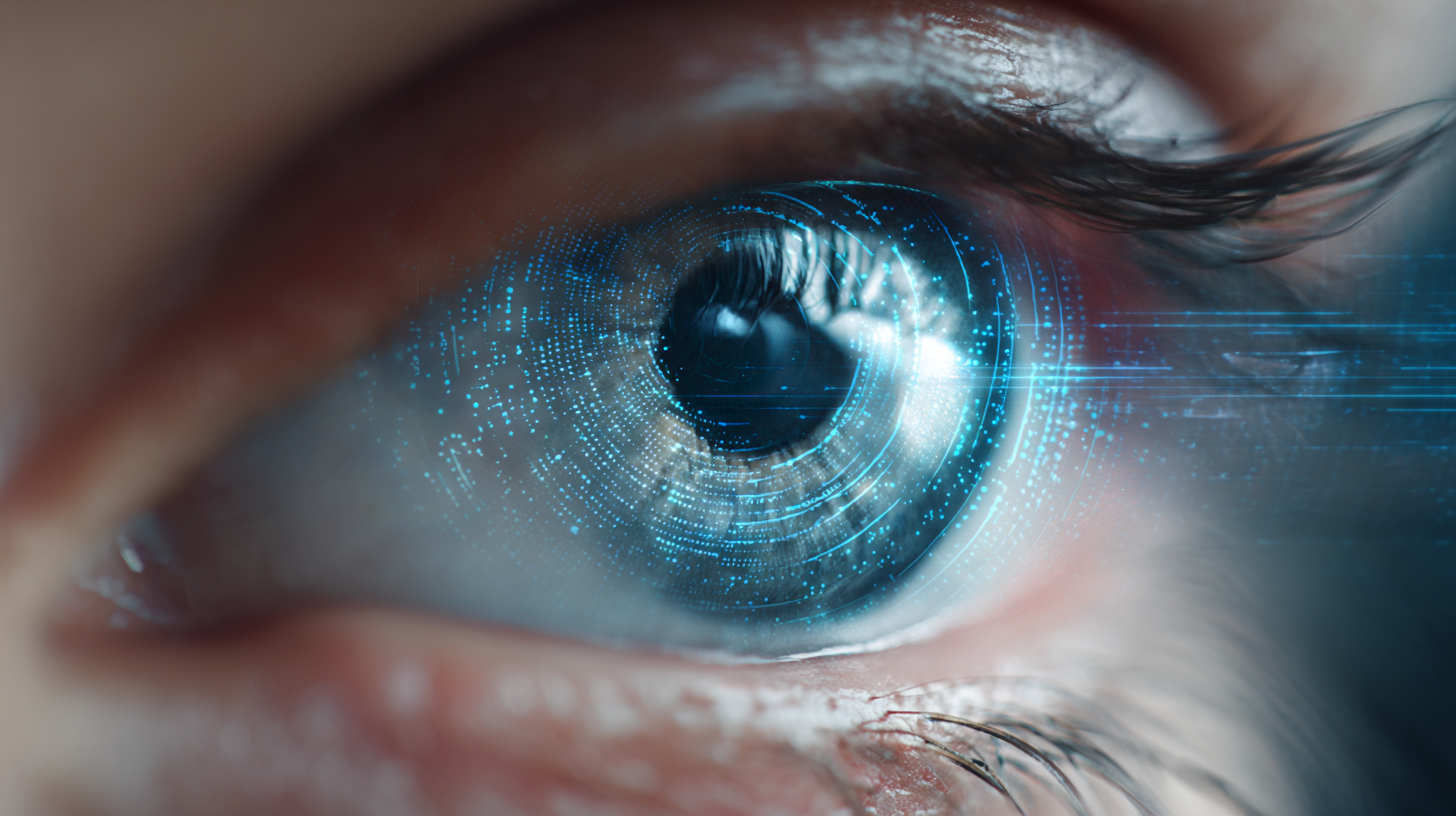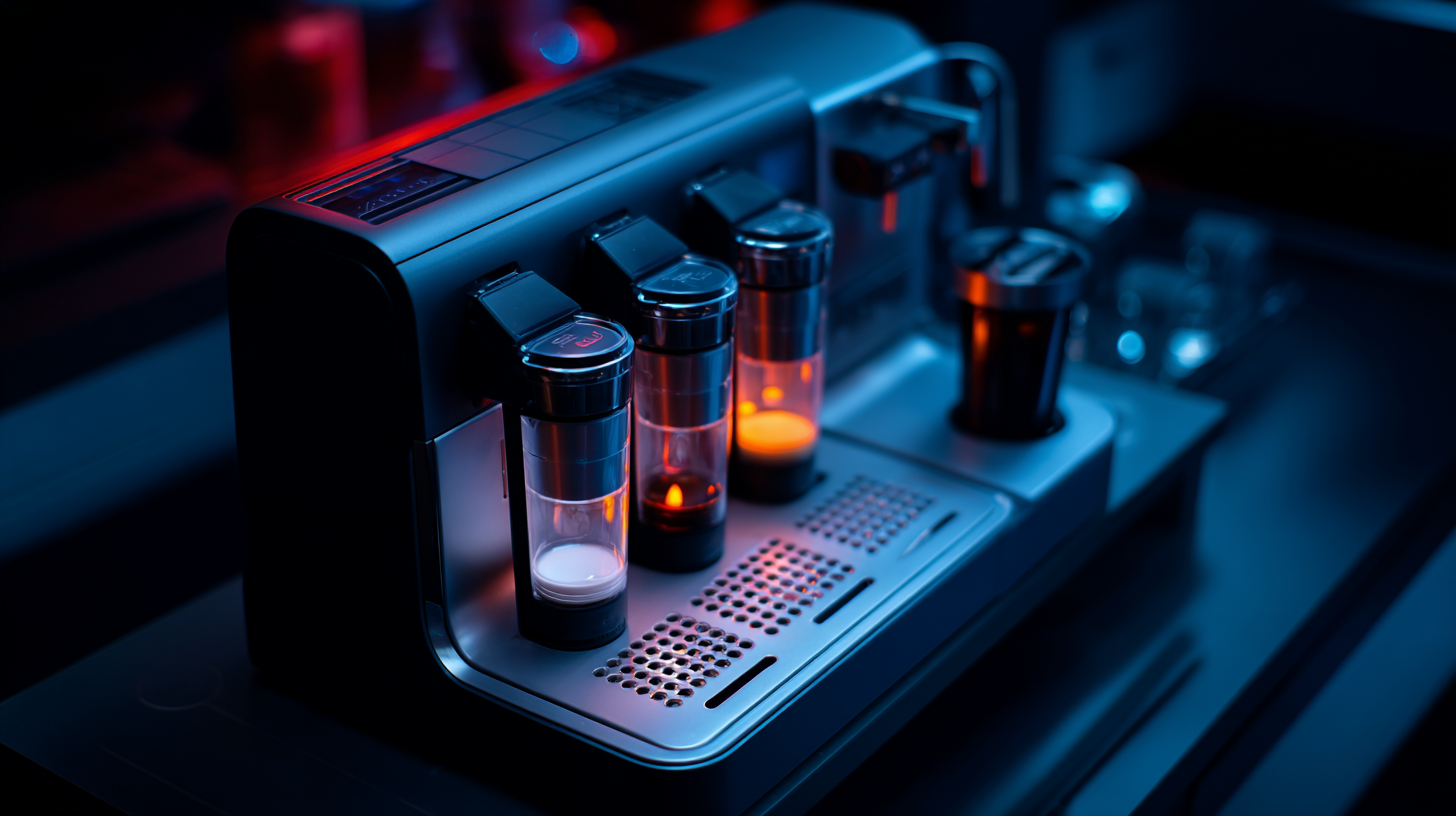Choosing the Right Manufacturer for the Best Biometric Machine to Ensure High Quality and Reliability
In today's rapidly evolving technological landscape, selecting the right manufacturer for a Biometric Machine is crucial for ensuring high quality and reliability. With the increasing demand for secure identification methods across various industries, businesses must navigate a multitude of options when it comes to biometric solutions. The intricacies of biometric technologies—from fingerprint scanners to facial recognition systems—require not only advanced engineering but also a trustworthy partnership with manufacturers who prioritize precision and durability. This blog will delve into essential factors to consider when choosing a manufacturer, including their industry reputation, technological expertise, and after-sales support. By making informed decisions, organizations can enhance their security measures while also ensuring that their investments in biometric technology yield long-term benefits and reliability.

Key Factors to Consider When Selecting a Biometric Machine Manufacturer
When it comes to selecting a manufacturer for biometric machines, several key factors must be considered to ensure high quality and reliability. Firstly, examining the manufacturer's experience and reputation in the industry is crucial. An established company with a proven track record is more likely to provide durable and efficient products. It's wise to research customer reviews and case studies that highlight the performance of their machines in real-world scenarios.
Tips: Look for manufacturers that offer a comprehensive warranty and post-purchase support. A reliable provider will not only have confidence in the longevity of their products but also be committed to assisting customers post-sale.
Additionally, evaluating the technology utilized by the manufacturer can play a pivotal role in your decision-making process. Ensure that they employ cutting-edge technology that meets current standards and regulations. This not only enhances the machine’s functionality but also ensures data security and protection against unauthorized access.
Tips: Request demos or trial periods to test the functionality and user interface of the biometric machines. This hands-on experience can reveal valuable insights about the product's reliability and ease of use.
Top Features to Look for in High-Quality Biometric Devices
 When selecting a high-quality biometric machine, certain features are essential to ensure reliability and efficiency. Recent studies indicate that devices with advanced fingerprint reading technology exhibit a 30% improvement in accuracy compared to older models. Key features to consider include high-resolution scanners that can capture detailed ridge patterns, making them resistant to spoofing attempts, such as those seen in recent cases where fake fingers have exploited outdated biometric systems.
When selecting a high-quality biometric machine, certain features are essential to ensure reliability and efficiency. Recent studies indicate that devices with advanced fingerprint reading technology exhibit a 30% improvement in accuracy compared to older models. Key features to consider include high-resolution scanners that can capture detailed ridge patterns, making them resistant to spoofing attempts, such as those seen in recent cases where fake fingers have exploited outdated biometric systems.
It’s crucial to prioritize devices that offer multiple authentication methods. A biometric device that combines fingerprint recognition with facial recognition or iris scanning not only enhances security but also provides flexibility in user identification. Research suggests that systems employing multifactor authentication reduce unauthorized access incidents by up to 50%, greatly safeguarding sensitive information.
Tips: When evaluating biometric devices, ensure they are equipped with anti-spoofing technology. Additionally, consider manufacturers that offer robust software support and regular updates for their systems to stay ahead of emerging security threats. Regular training on the devices for end-users can also improve the overall effectiveness of biometric systems in real-world applications.
Understanding Industry Standards for Biometric Device Reliability
When selecting a manufacturer for biometric machines, understanding the industry's standards for device reliability is crucial. According to a recent report by the FDA, a significant percentage of medical devices fail to meet the required cybersecurity standards, which can lead to critical vulnerabilities. Compliance with these standards not only ensures the protection of sensitive data but also enhances the overall reliability of biometric devices in clinical and consumer applications. Manufacturers should prioritize cybersecurity protocols during the production process to meet evolving regulatory requirements and consumer expectations.
Furthermore, biometric devices must adhere to specific performance metrics outlined by organizations such as ISO and IEC. A study showed that devices meeting these international quality standards had a failure rate of less than 5% compared to those that did not conform. This highlights the importance of investing in manufacturers that are certified and recognized for their adherence to these rigorous quality benchmarks. As the demand for reliable biometric devices continues to grow, ensuring that your chosen manufacturer aligns with industry standards is essential for achieving both high quality and reliability in product performance.
Comparison of Biometric Device Reliability Metrics
Evaluating Manufacturer Reputation and Customer Reviews for Quality Assurance
When selecting a biometric machine, the reputation of the manufacturer plays a crucial role in ensuring high-quality and reliable performance. Industry reports indicate that approximately 70% of customers base their purchasing decisions on manufacturer reputation and customer reviews. This statistic underscores the need to thoroughly evaluate potential manufacturers before making a decision. Look for companies that have been in the industry for several years and have a proven track record of providing reliable biometric solutions.
Tip: Check various online platforms and forums for customer reviews and testimonials. Look for patterns in feedback, especially regarding product reliability, customer support, and ease of use. A manufacturer with consistently positive reviews and high customer satisfaction ratings is likely to deliver on quality.
Moreover, attending industry trade shows and conferences can also provide a wealth of information. Engaging with current users and experts allows potential buyers to receive firsthand insights about the performance and reliability of specific biometric machines from various manufacturers. This direct feedback can be invaluable in making an informed choice.
Tip: Utilize social media and professional networks to gather insights from real users. LinkedIn, for instance, can connect you with industry professionals who can share their experiences with specific biometric manufacturers, aiding in your decision-making process.
Choosing the Right Manufacturer for the Best Biometric Machine to Ensure High Quality and Reliability
| Manufacturer Reputation | Customer Reviews | Product Quality Rating | Reliability Score | Average Resolution Time |
|---|---|---|---|---|
| Excellent | 4.8/5.0 | 9/10 | 98% | 24 hours |
| Good | 4.5/5.0 | 8/10 | 95% | 48 hours |
| Average | 4.0/5.0 | 7/10 | 90% | 72 hours |
| Below Average | 3.5/5.0 | 5/10 | 85% | 1 week |
| Poor | 2.0/5.0 | 3/10 | 70% | 2 weeks |
Cost vs. Quality: Making the Right Investment in Biometric Machines
When investing in biometric machines, the balance between cost and quality is crucial for making an informed decision. Higher-quality biometric systems may come with a more substantial upfront investment, but they often provide superior reliability and functionality. This is particularly important for businesses where security and precision are paramount. A robust biometric solution not only enhances security measures but also contributes to the overall efficiency of operations.
**Tips for Choosing the Right Biometric Machine:**
1. Evaluate your specific needs: Different biometric systems offer various features. Determine whether you need facial recognition, fingerprint scanning, or iris scanning based on your operational requirements.
2. Research the manufacturer's reputation: Look for manufacturers with a proven track record in delivering high-quality biometric machines. Reading customer reviews and industry reports can provide insights into their reliability.
3. Analyze the total cost of ownership: Consider ongoing maintenance, software updates, and potential scalability. A lower initial purchase price may escalate costs over time if the system is not designed for durability and longevity.
Investing wisely in biometric technology can lead to enhanced trust and security within your organization, ultimately resulting in better returns on investment. By prioritizing quality over mere cost savings, businesses can ensure they are making a sound investment for the future.
